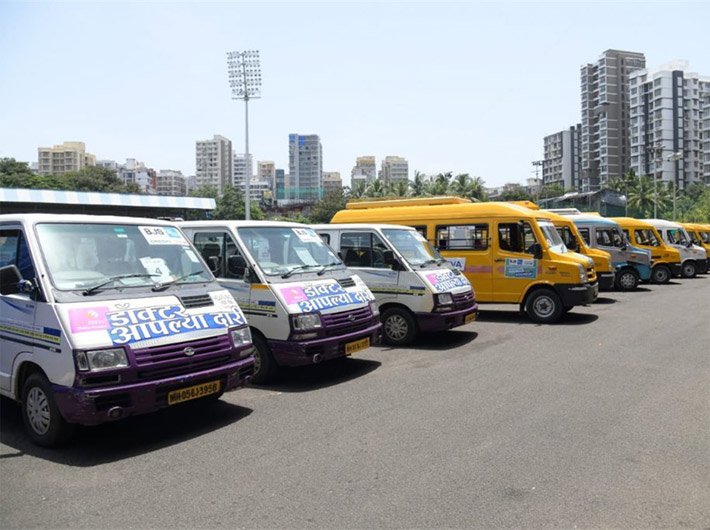BMC will proactively follow tracing, tracking, testing and treating along with PPP
With the number of Covid-19 cases gradually coming down to single digits in Asia’s largest slum sprawl of Dharavi which has population density of 2,27,136 persons per sq km and Worli hot spots, the Brihanmumbai Municipal Corporation (BMC) will now replicate the same model of the Rapid Action Plan for the city’s northern suburbs of Borivali-Kandivali-Malad and Mulund-Bhandup-Dahisar where infections are rapidly increasing on a daily basis .
The Rapid Action Plan has been modelled on the lines of the strategy that helped contain the spread in Worli and Dharavi. As part of the plan, BMC has pressed into service 50 mobile fever clinics in ambulances in these areas. The mobile clinics drive around through the day with a team of doctors who carry out door-to-door screening of residents, check for fever and other symptoms, co-morbidities and collect swabs of any suspected person.
The steps for elaborate screening include door-to-door survey of at least 10,000 houses per ward. Each community volunteer equipped with a thermal scanner and a pulse oximeter screens about 100 houses. The BMC will screen 25 lakh people in the coming week.
Similar to its public-private partnership (PPP) with various civil society organizations in Dharavi, for suburbs the BMC has tied up with local doctors, real estate body CREDAI-MCHI and NGOs Bharatiya Jain Sanghatan and Desh Apnayen Foundation which are helping out in providing mobile vans, medicines etc. BMC will undertake swab testing, isolation and quarantine facilities.
To speed up testing across Covid-19 hotspots in Mumbai and Pune, the government of Maharashtra is procuring 1 lakh kits of rapid antigen test. These kits, manufactured by South Korean company SD Biosensor, have been approved by the Indian Council of Medical Research (ICMR). The rapid antigen test, performed on a suspected patient’s nasal swab, detects the presence of viral proteins. Unlike TR-PCT tests, the result is available in less than 30 minutes and provides speed to fight pandemic.
From the current average of 4,000-4,500 tests daily, the quantum of testing per day in Mumbai is set to go up to 6,000. In comparison, Delhi on Tuesday overtook Mumbai in the number of reported Covid cases and has been testing in excess of 15,000 per day.
The union government has praised the BMC’s ‘Chase the Virus’ strategy by aggressively conducting targeted tracing of Covid suspects. The health ministry in its communication has noted that BMC adopted a model of actively following 4 Ts – Tracing, Tracking, Testing and Treating. This approach included activities like proactive screening.
While 47,500 people were covered by doctors and private clinics in house-to-house screening, about 14,970 people were screened with the help of mobile vans, and 4,76,775 were surveyed by BMC health workers. Fever clinics were set up for screening high risk category such as elderly and senior citizens.
This helped to screen 3.6 lakh people. Around 8,200 senior citizens were surveyed and as part of its policy of ‘Timely Separation’ they were separated from the other community to effectively limit the transmission of the disease. In all, 5,48,270 people have been screened in Dharavi. The suspected cases were shifted to well organized Covid Care Centres and Quarantine Centres. As a result of these measures, the doubling rate in Dharavi has gone beyond 78 days which is more than twice the rate for Mumbai.
The centre has been closely coordinating with state governments and local bodies in fight against coronavirus by devising pre-emptive, pro-active and graded response policy. Various guidelines, advisories and treatment protocols from time to time have been developed and shared with the states to strengthen the collective response towards combating Covid-19.

